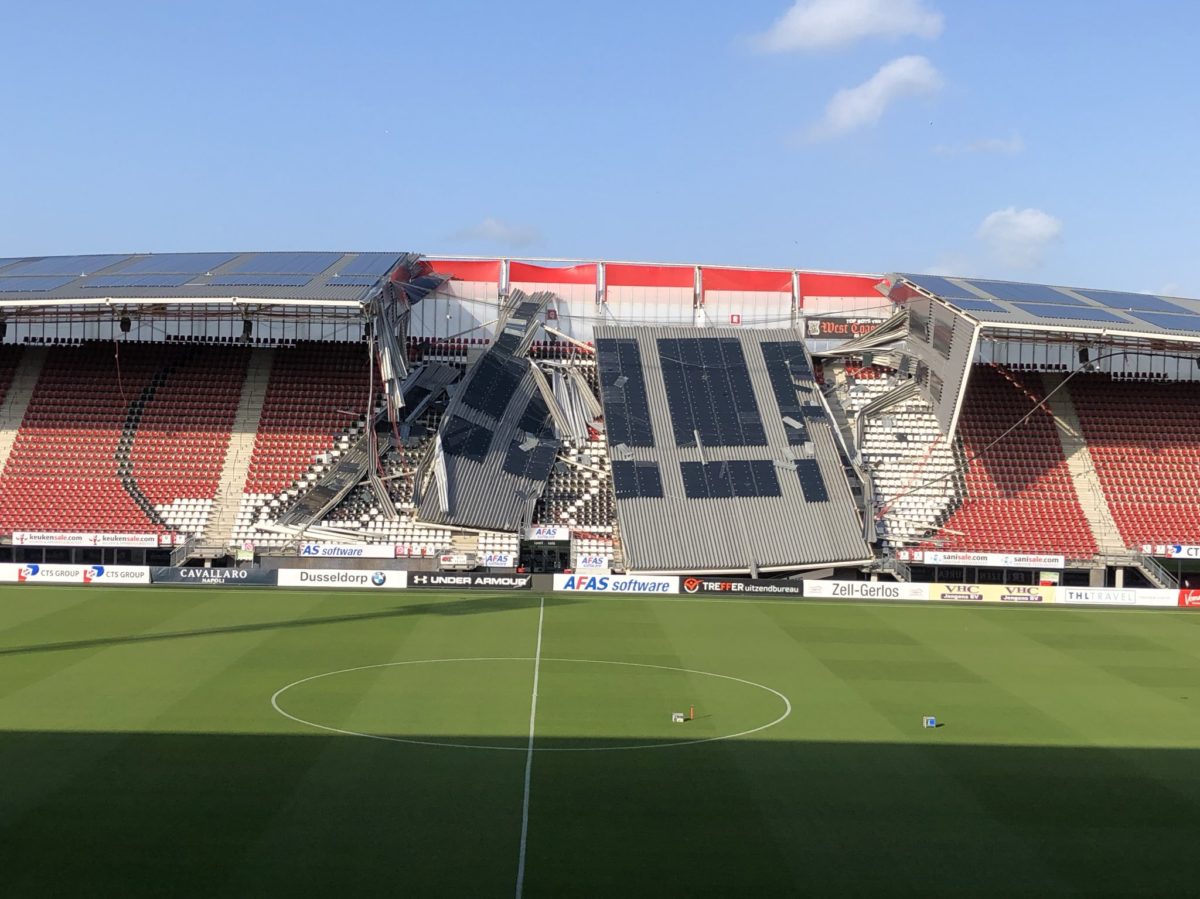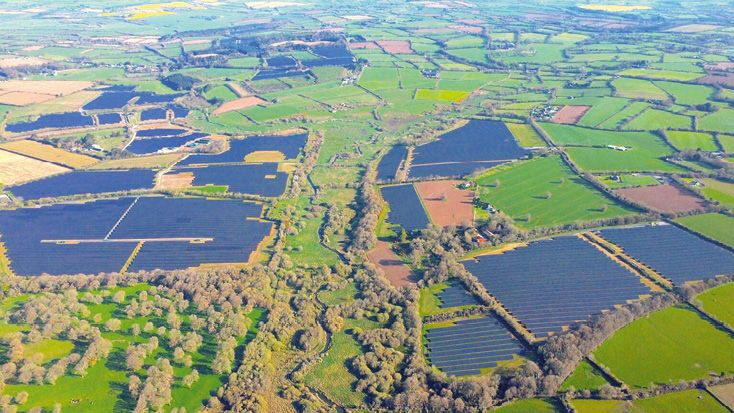When the roof of AZ Alkmaar's football stadium collapsed in mid-August 2019, most Dutch media reports highlighted the presence of rooftop solar panels as the possible reason for the accident, which did not result in any casualties, as the venue was empty at the time.
The team’s general manager, Robert Eenhoorn, announced an immediate investigation in response to the incident. Now, eight months later, Dutch engineering consultancy Royal HaskoningDHV has finally delivered the results of the probe and the firm is unequivocal in stating that solar was not the cause of the roof collapse.
In its report, Royal HaskoningDHV said that the partial collapse of the AFAS Stadium roof was caused by the failure of a connection in the top rail girder. It added that the collapse was caused by strong wind loads during a storm. The firm explained that the welding in the top rail girder was the key issue.
“These welds were made too thin, resulting in an estimated 50% reduction in capacity,” the company stated, rejecting initial claims that the presence of solar panels might have been a possible contributing factor. “The design of the top rail girder was incorrect. Other possible technical causes did not play a significant role.”
Thorsten Kray, head of the PV wind loading department at Germany’s Institut für Industrieaerodynamik GmbH, told pv magazine back in August that the cause of the roof collapse should be attributed to faulty design calculations.
“I have had a quick look on the news feed,” he said at the time. “And, I absolutely do not believe that the solar panels are the root cause of the wind-related failure. If the structural design calculations were carried out properly, [and] taking the dead load of the solar panels into account, PV panels cannot be considered the cause.”
Kray cited numerous scientific publications about flush-mounted PV panels, which show that roof-parallel solar systems do not increase static wind load on rooftops.
This content is protected by copyright and may not be reused. If you want to cooperate with us and would like to reuse some of our content, please contact: editors@pv-magazine.com.




By submitting this form you agree to pv magazine using your data for the purposes of publishing your comment.
Your personal data will only be disclosed or otherwise transmitted to third parties for the purposes of spam filtering or if this is necessary for technical maintenance of the website. Any other transfer to third parties will not take place unless this is justified on the basis of applicable data protection regulations or if pv magazine is legally obliged to do so.
You may revoke this consent at any time with effect for the future, in which case your personal data will be deleted immediately. Otherwise, your data will be deleted if pv magazine has processed your request or the purpose of data storage is fulfilled.
Further information on data privacy can be found in our Data Protection Policy.